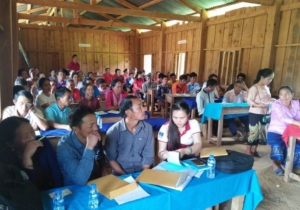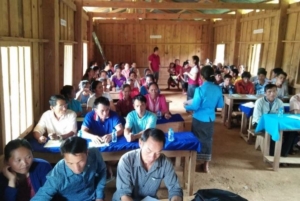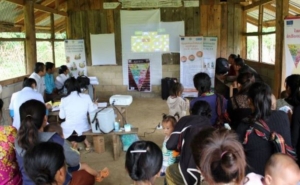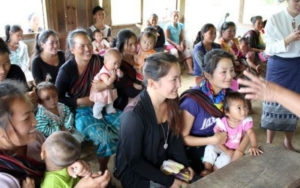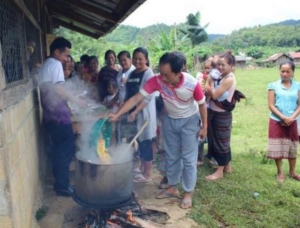Project
Strengthening of Environment and Natural Resources Conservation through Gender Equality and Community Economic Development (SENGCED)
-
Amount Funded
24,824 EUROProject Duration
01 Oct 2018 - 30 Sep 2019 -
-
Lead organisation
Association for Preservation of Natural Resources, Environment and Community Development (APECD)
-
APECD is one of Civil Society Organization (CSO), located in Xeingkhuang (XK) province, Lao PDR and was established in 2015 based on the provincial governor agreement letter issued no. 478/XK. The goal of APECD is to provide social services specifically preservation of natural resources, environment, and community development within Xiengkhuang province. In 2016, APECD started conducting education and awareness raising on garbage, forest and water resource conservation in special days and during traditional culture festivals. APECD also supported the green city project by planting trees around Pek district, Xiengkhuang city . In 2017 APECD implemented the Conservation of wildlife in relation to tourism project funded by Global Environment Facility/UNDP within the original Nam-Ngum river. The specific objective was to strengthen local products of villagers and promote ecotourism in two villages.
-
Organisation
APECD is one of Civil Society Organization (CSO), located in Xeingkhuang (XK) province, Lao PDR and was established in 2015 based on the provincial governor agreement letter issued no. 478/XK. The goal of APECD is to provide social services specifically preservation of natural resources, environment, and community development within Xiengkhuang province. In 2016, APECD started conducting education and awareness raising on garbage, forest and water resource conservation in special days and during traditional culture festivals. APECD also supported the green city project by planting trees around Pek district, Xiengkhuang city . In 2017 APECD implemented the Conservation of wildlife in relation to tourism project funded by Global Environment Facility/UNDP within the original Nam-Ngum river. The specific objective was to strengthen local products of villagers and promote ecotourism in two villages.
-
Project
The project goal is to increase empowerment and participation of women in conservation of natural resources and community development in the Phou san forest area with three key objectives:1. Strengthen sustainability and professional development of women leaders,2. Strengthen women access to social activity in relation to increasing participation in community development intervention, and3. Support women leaders to raise awareness to promote gender equality and participation in community development.In order to achieve all these objectives a set of activities were identified. The results of these activities implementation will be of benefit to the community particularly for sustainable gender equality, forest, wildlife, and natural resources management. The involvement of the community in designing, planning, and implementing of the project will also be key.
-
-
The project goal is to increase empowerment and participation of women in conservation of natural resources and community development in the Phou san forest area with three key objectives:1. Strengthen sustainability and professional development of women leaders,2. Strengthen women access to social activity in relation to increasing participation in community development intervention, and3. Support women leaders to raise awareness to promote gender equality and participation in community development.In order to achieve all these objectives a set of activities were identified. The results of these activities implementation will be of benefit to the community particularly for sustainable gender equality, forest, wildlife, and natural resources management. The involvement of the community in designing, planning, and implementing of the project will also be key.
-
In the project’s target villages, there was a significant shift in women’s empowerment and social perceptions of gender equality. In terms of gender equality and community development, this was a key outcome of the project’s implementation. Women positioned themselves to improve gender equality in their communities, as well as shift women’s power in their households and village authorities to a new power relationship. After joining in the project’s training sessions, the communities’ women leaders demonstrated their confidence and active participation in sharing knowledge, experiences, and skills in order to change the situation within their villages. The women became aware that they can participate in all social activities and community development without barriers, as determined by the local village authority. They began to speak out about their rights and contributions to community development, particularly the women who serve on village councils and forest management committees.
“Actually, I used to present and discuss with friends and other villagers in my village in this manner, but I never had IEC materials and practice during training, and neither did my team, so I believe it is beneficial for us to participate and develop our workplan in this manner. I appreciate this training, and I believe that having a picture related to the topic discussion for this type of activity will help participants understand and believe what we are talking about.” – Community women leader, Miengnalam village authority
Photos:







